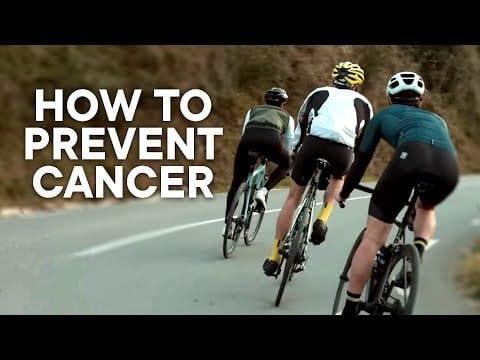
Introduction: Understanding Cancer and the Importance of Prevention
Cancer is a leading cause of death worldwide, with the American Cancer Society estimating that over 1.9 million people in the U.S. will be diagnosed with cancer in 2025. While certain risk factors like genetics, age, and family history cannot be controlled, the majority of cancers are influenced by lifestyle factors that are modifiable. This means that through healthy habits and preventive actions, many types of cancer can be avoided or their risk significantly reduced.
1. Maintain a Healthy Weight
Obesity is one of the most significant risk factors for cancer in the U.S. Overweight and obese individuals have a higher risk of developing several types of cancer, including breast cancer, colorectal cancer, and kidney cancer. The link between body weight and cancer risk is largely due to the effect excess fat has on hormone levels, inflammation, and insulin sensitivity.
How to Achieve and Maintain a Healthy Weight:
- Exercise Regularly:
Aim for 150 minutes of moderate-intensity exercise per week. This could include activities like walking, swimming, or biking. Exercise helps control weight and reduces inflammation, both of which contribute to cancer prevention. - Eat a Balanced Diet:
Prioritize whole foods, including fruits, vegetables, whole grains, and lean proteins. These foods are packed with antioxidants and fiber that help protect against cancer. Avoid processed foods and limit saturated fats. - Monitor Portion Sizes:
Overeating, even healthy foods, can contribute to weight gain. Use smaller plates, practice mindful eating, and avoid late-night snacking to help control calorie intake.
2. Eat a Cancer-Fighting Diet
Diet plays a crucial role in cancer prevention. The right foods can reduce the risk of cancer by boosting immune function, fighting inflammation, and neutralizing free radicals in the body that can cause cell damage.
Cancer-Fighting Foods to Include:
- Fruits and Vegetables:
The more color on your plate, the better. Cruciferous vegetables (such as broccoli, cauliflower, and kale) contain compounds that have been shown to fight cancer. Aim for a variety of colorful fruits and vegetables, which are rich in vitamins, minerals, and phytonutrients. - Whole Grains:
Whole grains like brown rice, quinoa, and oats are high in fiber, which helps reduce the risk of colorectal cancer. They also stabilize blood sugar and promote healthy digestion. - Healthy Fats:
Olive oil, avocados, and nuts provide healthy fats that help reduce inflammation. These fats also support cellular function and protect against cancer-causing mutations. - Limit Red and Processed Meats:
Studies have shown that red meat and processed meats (like bacon, hot dogs, and sausages) can increase the risk of cancers, particularly colorectal cancer. If you eat these, do so in moderation. - Drink Green Tea:
Green tea is rich in catechins, which are antioxidants that have been shown to help lower the risk of cancers like breast, prostate, and colon cancer.
3. Avoid Tobacco Products
Smoking is the leading cause of lung cancer, and tobacco use is responsible for nearly 1 in 5 deaths in the U.S. Additionally, smoking is linked to cancers of the mouth, throat, pancreas, bladder, kidney, cervix, and more.
How to Protect Yourself:
- Quit Smoking:
If you’re a smoker, quitting is the most effective way to reduce your cancer risk. Resources like Nicotine Replacement Therapy (NRT), counseling, and support groups can help you quit for good. - Avoid Secondhand Smoke:
Exposure to secondhand smoke is also a significant risk factor for lung cancer. Avoid areas where people smoke and advocate for smoke-free environments in your community. - Limit Exposure to Tobacco Smoke:
Be mindful of other forms of tobacco, like cigars and e-cigarettes, which are also linked to cancer.
4. Protect Your Skin from UV Radiation
Skin cancer is the most common type of cancer in the U.S. Ultraviolet (UV) radiation from the sun and tanning beds is the leading cause of skin cancer, including the deadly melanoma.
Steps to Prevent Skin Cancer:
- Use Sunscreen:
Apply a broad-spectrum sunscreen with an SPF of 30 or higher to exposed skin, even on cloudy days. Reapply every two hours when outdoors, and more frequently if swimming or sweating. - Avoid Tanning Beds:
Tanning beds emit UV radiation that can increase the risk of skin cancer, particularly in young people. Avoid them altogether to reduce your risk. - Wear Protective Clothing:
Wear wide-brimmed hats, sunglasses, and long-sleeved clothing when out in the sun for extended periods. Consider using clothing with built-in UV protection. - Seek Shade:
Try to stay out of direct sunlight, especially between the hours of 10 a.m. and 4 p.m., when UV rays are at their strongest.
5. Get Regular Cancer Screenings
Cancer screenings can help detect certain types of cancer at an early, more treatable stage. Regular screenings can increase the chances of a successful treatment outcome and even prevent some cancers from developing in the first place.
Essential Cancer Screenings to Consider:
- Breast Cancer:
Women should undergo regular mammograms starting at age 40, or earlier if they have a family history of breast cancer. - Cervical Cancer:
Women should start Pap smears at age 21 and continue every three years, or more often if recommended by their doctor. - Colorectal Cancer:
Individuals aged 45 and older should have regular colonoscopy screenings to detect colon cancer or precancerous polyps. - Prostate Cancer:
Men over 50 (or earlier if there is a family history) should discuss prostate-specific antigen (PSA) testing with their healthcare provider. - Skin Cancer:
Perform monthly self-checks for new or changing moles, and visit a dermatologist for regular skin exams, especially if you have a history of sunburns or family history of skin cancer.
6. Limit Alcohol Consumption
Alcohol consumption is associated with an increased risk of several types of cancer, including breast, liver, colorectal, and esophageal cancer. The risk increases with the amount of alcohol consumed over time.
Alcohol Guidelines:
- Limit Alcohol Intake:
Women should limit their alcohol consumption to one drink per day, and men should stick to two drinks per day. Avoid binge drinking altogether. - Choose Lower-Risk Drinks:
If you drink, choose drinks that are lower in alcohol content, like beer or wine, rather than hard liquor. Always drink responsibly.
Conclusion: Taking Control of Your Health
Cancer is a devastating disease, but it is possible to reduce your risk through a series of proactive steps. By maintaining a healthy weight, eating a cancer-fighting diet, quitting smoking, protecting your skin, getting regular screenings, and limiting alcohol intake, you can significantly lower your chances of developing cancer.
Prevention is always better than treatment, and it’s never too early or too late to start making positive changes in your life. Small, consistent efforts can have a huge impact on your health and may protect you from the devastating effects of cancer.
FAQs
Q1: Can cancer be prevented entirely?
A1: While it’s impossible to prevent every case of cancer, lifestyle choices such as a healthy diet, regular exercise, not smoking, and getting regular screenings can significantly reduce your risk.
Q2: How do I know if I am at high risk for cancer?
A2: Factors such as family history, genetics, lifestyle choices (like smoking and diet), and environmental exposures can increase your cancer risk. Speak to your doctor about your personal risk factors and preventive steps.
Q3: At what age should I start cancer screenings?
A3: Screening guidelines vary by cancer type and individual risk factors. Generally, screenings should begin at age 40-50 for many cancers, such as breast, colorectal, and prostate cancers. Consult with your healthcare provider for personalized recommendations.
Q4: Does alcohol really increase the risk of cancer?
A4: Yes, regular alcohol consumption is linked to an increased risk of several cancers, including breast, liver, and esophageal cancer. Limiting alcohol intake can reduce your risk.
Q5: How much exercise should I get to reduce my cancer risk?
A5: Aim for 150 minutes of moderate-intensity exercise per week, or 75 minutes of vigorous exercise. This helps maintain a healthy weight and reduces inflammation, both of which lower cancer risk
.



